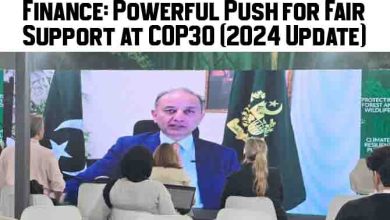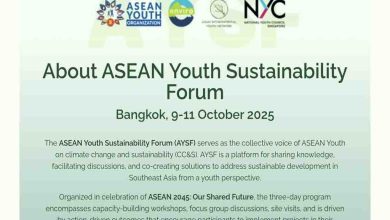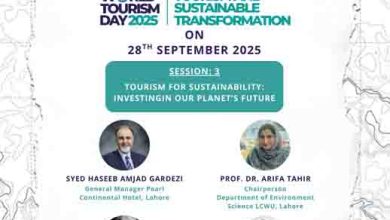Massive flooding hits Chiniot; residents being evacuated
PDMA has been vigilant, instructing all relevant authorities to remain on high alert
Chiniot, a location along the Chenab River, faced severe flooding as a substantial amount of water surged downstream. The floodwaters, released for the second time by India into the Chenab River, have raised concerns among neighboring communities.
Approximately 172,000 cusecs of water from the Chenab River resulted in the inundation of low-lying areas in Chiniot, forcing residents of such settlements to be evacuated via boats.
The assistant commissioner, along with dedicated rescue teams, is tirelessly working to ensure the safety of those affected.
In addition to the human impact, the floods have submerged hundreds of acres of standing crops, causing further distress to the local agricultural communities.
The deputy commissioner has issued alerts to all district departments, prompting the mobilization of field teams to tackle the emergency.
PDMA alert
The Provincial Disaster Management Authority (PDMA) has been vigilant, instructing all relevant authorities to remain on high alert. The disaster response teams of Rescue 1122 have been put on standby for immediate action if needed.
DG PDMA, Imran Qureshi, emphasized the need to stock sufficient quantities of petrol and diesel for rescue operations and to keep the affected residents well-informed about the current situation.
However, the PDMA provided reassurance that the water flow in Jhelum, Chenab, Ravi, and Sutlej rivers remains normal. At specific locations such as Marala, Khanki, and Qadirabad along the Chenab River, the water flow is reported to be within normal levels. Similarly, Trimam and Panjand are also experiencing normal water flow.
On the other hand, the Indus River is experiencing a low-level flood at Tarbela, Kala Bagh, and Chashma, adding to the concerns of the authorities and residents in these areas.
The PDMA control room is actively monitoring the situation around the clock to coordinate responses and take timely actions to mitigate the impact of the flooding.
Authorities are urging residents in the affected areas to remain vigilant and cooperate with evacuation efforts for their safety.







